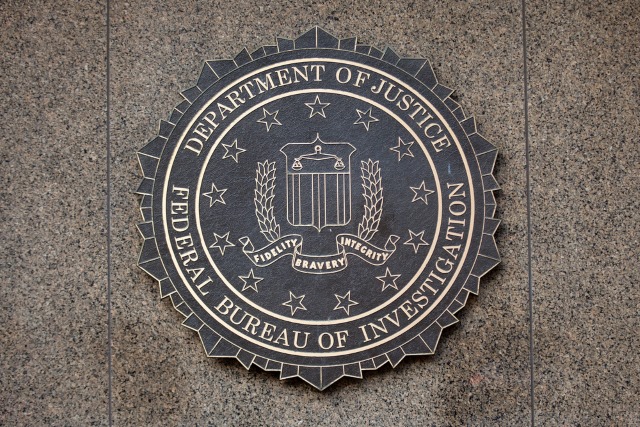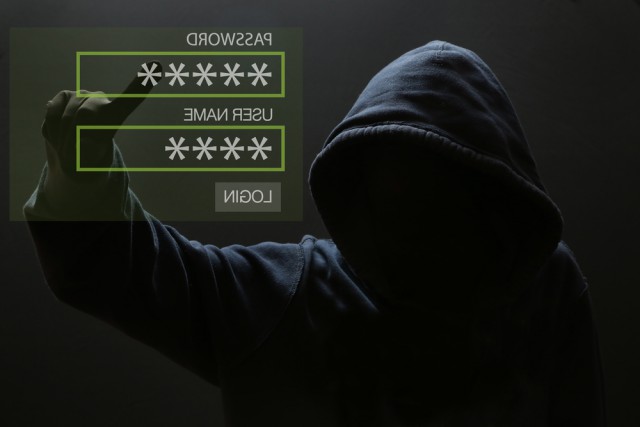
Facebook bans devs from creating surveillance tools with user data
Without a hint of irony, Facebook has told developers that they may not use data from Instagram and Facebook in surveillance tools.
The social network says that the practice has long been a contravention of its policies, but it is now tidying up and clarifying the wording of its developer policies. American Civil Liberties Union, Color of Change and the Center for Media Justice put pressure on Facebook after it transpired that data from users' feeds was being gathered and sold on to law enforcement agencies.

Worldwide web inventor Tim Berners-Lee's biggest concerns: privacy, fake news and political ads
It was 28 years ago that Tim-Berners-Lee submitted his proposal for the worldwide web. What he envisioned as an open platform that would break down global barriers has become a wild beast with endless problems. Talking on the anniversary of his invention, Berners-Lee has spoken about his concerns for the web.
He has three problems in his crosshairs, and he says the trio of issues is something "we must tackle in order for the web to fulfil its true potential as a tool that serves all of humanity." But he does not come armed with solutions; it's at least partly down to us to sort things out.

Ever Sentinel notifies you when companies change privacy policies or terms and conditions
Changes to terms and conditions or privacy policies happen all the time, and this presents a few problems for consumers. As well as having to negotiate through the often impenetrable language used in these documents, it can be near impossible to work out what has changed, and what the implications are. This is where Ever Sentinel can help.
The service monitors the terms and policies for a number of popular websites and services, and not only alerts you when they change, but highlights exactly what has changed. It's part of a drive to encourage greater transparency in terms and conditions and privacy policies, and it's free for you to use to keep yourself informed.

FBI investigates CIA leaks, Comey says 'There is no such thing as absolute privacy in America'
The FBI and CIA are working together on a joint investigation into the Vault 7 document cache published by WikiLeaks that supposedly reveals the CIA's hacking tools. Many of the companies mentioned in the documents for having exploitable vulnerabilities -- including Apple, the Linux Foundation, and Microsoft -- have spoken out about the leaks, but it has taken some time for the CIA itself to respond.
Speaking to the BBC, a CIA spokesperson said: "The American public should be deeply troubled by any Wikileaks disclosure designed to damage the intelligence community's ability to protect America against terrorists and other adversaries." FBI director James Comey has also spoken about the lack of privacy that now exists in the US.

Consumer Reports to factor privacy and security into its technology reviews
There is much to consider when buying a piece of technology, but price and suitability tend to be at the top of most people's lists. In recent years, however, there has been an increased interest in privacy and security, and this is something that renown reviewer Consumer Reports is going to start taking into consideration.
Consumer Reports most recently hit the headlines for deciding not to recommend the new MacBook Pro (although it later changed its mind), and now the non-profit has teamed up with a number of privacy, security, and consumer rights organizations with a view to creating a new digital standard for products to live up to. The aim is to put data security and privacy first, just as many consumers are starting to do.

Vault 7: WikiLeaks reveals CIA's secret hacking tools and spy operations
WikiLeaks has unleashed a treasure trove of data to the internet, exposing information about the CIA's arsenal of hacking tools. Code-named Vault 7, the first data is due to be released in serialized form, starting off with "Year Zero" as part one. A cache of over 8,500 documents and files has been made available via BitTorrent in an encrypted archive.
The plan had been to release the password at 9:00am ET today, but when a scheduled online press conference and stream came "under attack" prior to this, the password was released early. Included in the "extraordinary" release are details of the zero day weapons used by the CIA to exploit iPhones, Android phones, Windows, and even Samsung TVs to listen in on people. Routers, Linux, macOS -- nothing is safe.

Huge database leak reveals 1.37 billion email addresses and exposes illegal spam operation
A faulty backup has inadvertently exposed the entire working database of notorious spam operator River City Media (RCM). In all, the database contains more than 1.37 billion email addresses, and for some records there are additional details such as names, real-world addresses, and IP addresses. It's a situation that's described as "a tangible threat to online privacy and security."
Details about the leak come courtesy of Chris Vickery from macOS security firm MacKeeper who -- with a team of helpers -- has been investigating since January. River City Media's database ended up online thanks to incorrectly-configured Rsync backups. In the words of Vickery: "Chances are you, or at least someone you know, is affected."

Windows 10 Creators Update will offer users 'more choice and control' -- and fewer update reboots
Windows 10 Creators Update is expected to launch in April, and will deliver a wealth of new features and improvements. While a lot of the focus is on 3D creation, gaming enhancements, and security, Microsoft has also made a lot of welcome changes to the user experience.
Michael Fortin, CVP of Windows and Devices Group Core Quality, reveals today that the Creators Update will give users much greater control over privacy, security, and updates.

New security offering to guard against account take overs
Data breaches caused by account take overs (ATOs) are a growing problem, partly due to people reusing passwords so that when a high profile breach -- such as the recent one at Yahoo -- occurs other accounts are put at risk.
User behavior specialist Sift Science is taking on this threat and expanding into the cyber security market with a new tool to detect ATOs.

Ad blocker Shine does a complete u-turn... and rebrands as ad company Rainbow
In a perfect example of poacher-turned-gamekeeper, Israeli company Shine -- known for producing ad blocking software -- has rebranded as Rainbow and will instead offer an advertising service. Rainbow will work primarily with telecoms companies, and will have a strong focus on targeted advertising.
The company says that it wants to provide "a better ad experience for consumers", having apparently decided that blocking ads was not working for everyone. Rainbow aims to win round consumers by providing an opt-in service that means people will see only advertisements that comply with industry standards and observe privacy rules.

Study shows that whistleblowers need greater protection due to surveillance and anti-privacy tech
A study by London University's Institute of Advanced Legal Studies (IALS) shows that journalists find it harder to protect their sources in the digital age, and suggests that whistleblowers should be afforded greater legal protection. The arrival of Donald Trump on the scene has created a greater sense of urgency.
The report, entitled "Protecting Sources and Whistleblowers in a Digital Age", says that monitoring of phone calls as well as online surveillance means it is now easier to identify sources that would otherwise have remained anonymous. People like Edward Snowden and Julian Assange have brought whistleblowing into the spotlight in recent years, and proposed changes to the UK's Official Secrets Act that would deny using "public interest" as a defense, coupled with the increased interest in surveillance mean that this is a hot topic once again.

Americans at risk of identity theft as they file their tax returns
As we move into the tax return season a new study reveals that attitudes to identity theft and a pattern of poor practices are leaving much of the public vulnerable.
Data security and ID theft protection company CyberScout has carried out its second annual Tax Season Risk Report and finds 58 percent of Americans are not worried about tax fraud in spite of federal reports of 787,000 confirmed identity theft returns in 2016, totaling more than $4 billion in potential fraud.

The top three barriers to digital transformation
To stay competitive in an increasingly digital world, companies are looking to transform their digital environment to improve collaboration and maintain their edge.
But a new study by Intralinks and the Cloud Security Alliance reveals that digital transformation strategies are being hindered by three main barriers.

Europe still has concerns about privacy in Windows 10
Privacy fears abound with Windows 10, with individuals and privacy groups continually questioning the company's motives in gathering user data. The threat of a court case in Switzerland resulted in Microsoft making changes to Windows -- in addition to the privacy changes it had already made.
But for European privacy watchdogs, the latest batch of changes are still not enough. The Article 29 Working Party voices concern about the settings that are in place by default, the lack of control users are given over data collection, and a general lack of transparency.

Americans more concerned about online privacy and security than a year ago
New data released today shows that Americans are increasingly concerned about their online privacy and security, including apprehension about increased government surveillance in the new presidential administration.
The survey by secure access specialist AnchorFree of over 1,000 users of the company's Hotspot Shield personal VPN application reveals 84 percent say they are more concerned about their online privacy and security today than they were a year ago.
